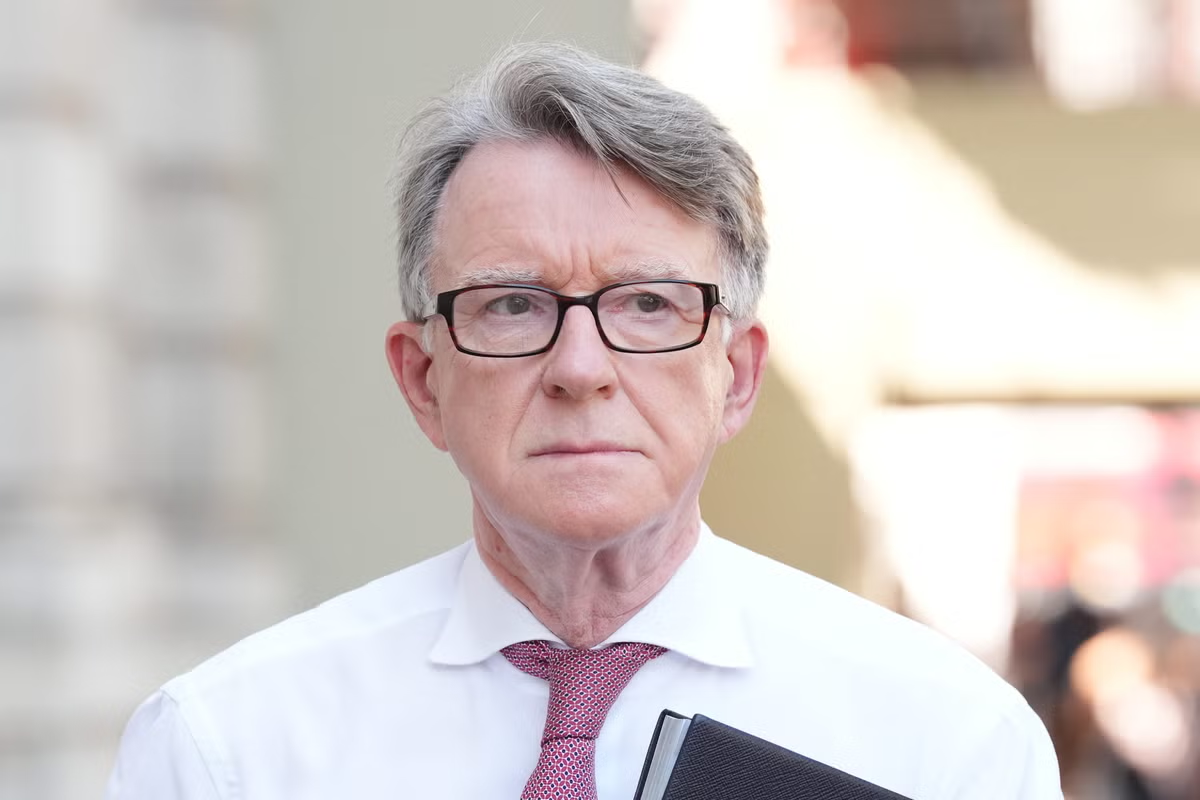On September 11, 2025, Burkina Faso made headlines with a groundbreaking announcement: the country would eliminate visa fees for all African travelers. This decision, rooted in the pan-African vision of Transitional President Captain Ibrahim Traoré, marks a significant step toward fostering unity, boosting tourism, and easing cross-border trade across the continent. As someone who’s traveled through West Africa and witnessed the challenges of navigating visa processes, I can’t help but feel a spark of excitement about what this means for African travelers. This article dives deep into the implications of Burkina Faso’s new policy, its context within the broader African travel landscape, and practical tips for those planning to visit. Let’s explore how this move could reshape intra-African travel and why it’s a game-changer.
Why Burkina Faso’s Visa Fee Waiver Matters
This policy isn’t just about saving a few bucks—it’s a bold statement of solidarity and a push for a more connected Africa. By removing visa fees, Burkina Faso aims to make travel more accessible, promote cultural exchange, and support economic growth. It’s a move that aligns with the dreams of pan-African pioneers like Kwame Nkrumah, who envisioned a borderless continent where Africans could move freely.
The Context of Intra-African Travel
Travel within Africa has long been hindered by high visa fees, complex application processes, and bureaucratic red tape. According to the 2024 Africa Visa Openness Index, 47% of intra-African travel still requires visas, making it harder for Africans to visit neighboring countries than for Western tourists. Burkina Faso’s decision challenges this status quo, joining nations like Ghana, Rwanda, and Kenya in easing travel barriers.
A Personal Connection to African Travel
During a trip to Ghana a few years ago, I spent hours navigating visa requirements and fees that felt like a tax on exploring my own continent’s beauty. The process was exhausting, and I couldn’t help but wonder why moving within Africa felt so restrictive. Hearing about Burkina Faso’s visa fee waiver brought back that frustration—and a glimmer of hope that travel could become easier for Africans like me.
Understanding Burkina Faso’s New Visa Policy
The decision to scrap visa fees was announced after a Council of Ministers meeting chaired by President Traoré, with Security Minister Mahamadou Sana emphasizing its alignment with pan-African ideals. While fees are eliminated, travelers must still apply for a visa through an online portal, ensuring security protocols remain intact. This policy, part of the 2025 supplementary finance law, aims to boost tourism, trade, and Burkina Faso’s global visibility.
Key Details of the Policy
- Who’s Eligible: All citizens of African countries, regardless of nationality.
- Application Process: Travelers must submit an online visa application via Burkina Faso’s e-visa portal for approval.
- No Start Date Announced: As of September 12, 2025, the official e-visa portal still lists processing fees, suggesting the policy may not yet be fully implemented.
- Goals: Promote tourism, enhance cultural exchange, and support the African Continental Free Trade Area (AfCFTA).
Why Now?
Burkina Faso’s move comes at a time of geopolitical shifts, including its withdrawal from the Economic Community of West African States (ECOWAS) alongside Mali and Niger. This exit raised concerns about regional travel protocols, as ECOWAS citizens previously enjoyed visa-free access. By scrapping fees for all Africans, Burkina Faso is signaling openness despite these tensions, aligning with broader pan-African goals.
The Broader Impact on African Travel
This policy positions Burkina Faso as a leader in the push for open borders, a vision championed by initiatives like the Trans-African Tourism and Unity Campaign, which calls for a visa-free Africa by 2030. By easing financial barriers, Burkina Faso could inspire other nations to follow suit, creating a ripple effect across the continent.
Boosting Tourism and Culture
Burkina Faso, known as the “Land of Upright People,” is home to vibrant cultural festivals like FESPACO (Panafrican Film and Television Festival of Ouagadougou) and stunning landscapes like the Sindou Peaks. Freeing up visa costs could draw more African tourists to these attractions, showcasing Burkinabe culture and boosting local economies. As Minister Sana noted, this move will “promote tourism and Burkinabe culture” while enhancing the country’s international visibility.
Supporting Regional Trade
The policy aligns with the AfCFTA, which aims to create a single market for goods and services across Africa. By reducing travel costs, Burkina Faso facilitates business and commercial travel, encouraging entrepreneurs and traders to explore opportunities in Ouagadougou and beyond. This could strengthen intra-African trade, which currently accounts for only 15% of the continent’s total trade.
Challenges Amid Security Concerns
Burkina Faso faces significant challenges, with nearly 40% of its territory under militant control due to ongoing Islamist violence in the Sahel. The online visa application process ensures security checks, but the country must balance openness with safety. Travelers should stay informed about security advisories before planning their trip.
Comparison: Burkina Faso vs. Other African Countries’ Visa Policies
Burkina Faso’s policy joins a growing trend of African nations easing travel restrictions. Here’s how it compares to other countries’ approaches:
| Country | Visa Policy for Africans | Key Features | Challenges |
|---|---|---|---|
| Burkina Faso | Free visas, online application required | No fees, promotes pan-African unity | Implementation unclear, security concerns |
| Ghana | Visa-free for all African passport holders | No application needed, full access | Limited to specific entry points |
| Rwanda | Visa-free for all Africans | Streamlined entry, boosts tourism | Security screenings for certain countries |
| Kenya | No visa fees, Electronic Travel Authorization | Simplified process, supports open skies | Excludes Libya, Somalia for security |
Verdict: Burkina Faso’s policy is progressive but less comprehensive than Ghana or Rwanda’s visa-free access. The online application requirement adds a layer of bureaucracy but ensures security, making it a balanced approach.
Pros and Cons of the Visa Fee Waiver
Pros:
- Reduces financial barriers for African travelers, making Burkina Faso more accessible.
- Promotes tourism, cultural exchange, and trade, aligning with AfCFTA goals.
- Strengthens pan-African solidarity, fostering unity across the continent.
- Positions Burkina Faso as a leader in intra-African mobility.
Cons:
- Online application process may deter less tech-savvy travelers.
- No clear implementation date creates uncertainty for travelers.
- Security concerns in the Sahel may limit the policy’s immediate impact.
- Does not fully eliminate visa requirements, unlike true visa-free policies.
How to Apply for a Burkina Faso Visa
While the visa fee waiver is exciting, travelers must still navigate the online application process. Here’s a step-by-step guide to ensure a smooth experience.
Step 1: Visit the Official E-Visa Portal
Access Burkina Faso’s official e-visa portal (check burkinafaso-evisa.com for updates). Ensure you’re using a secure, government-affiliated site to avoid scams. The portal is user-friendly and mobile-optimized.
Step 2: Complete the Application
Provide personal details, travel itinerary, and supporting documents like a passport scan. Double-check for accuracy to avoid delays. The process typically takes 5–10 minutes.
Step 3: Await Approval
Applications are reviewed for security purposes, with processing times varying from 24 hours to a week. Check your email for updates and ensure your travel plans are flexible.
Step 4: Prepare for Arrival
Once approved, download your e-visa and carry a printed copy. Have proof of accommodation and return flights handy, as immigration officers may request them.
Where to Get Help
- Embassies: Contact Burkina Faso’s embassies in your home country for assistance. Find a list at burkinafasoembassy-usa.org.
- Travel Agencies: Agencies like Wakanow or Travelstart offer visa support services (~$20–50).
- Online Forums: Join communities on Reddit or TripAdvisor for traveler tips and updates.
Tools and Resources for Traveling to Burkina Faso
Planning a trip to Burkina Faso requires the right tools to ensure a seamless experience. Here are the best options:
- E-Visa Portal: Use the official portal for visa applications (check for updates on fee waivers). Free as of the new policy.
- Travel Apps: Apps like TripIt (~$49/year) or Google Maps (free) help plan itineraries and navigate Ouagadougou.
- Guidebooks: Lonely Planet West Africa (~$25, Amazon) offers detailed insights on Burkina Faso’s attractions.
- Travel Insurance: World Nomads (~$50–100/trip) covers medical emergencies and trip cancellations, crucial given the region’s security challenges.
Where to Buy Tools
- Amazon: Stocks guidebooks and travel gear like portable chargers (~$20–40).
- Local Travel Agencies: Offer personalized planning and visa support.
- Online Platforms: Websites like Skyscanner help find affordable flights to Ouagadougou.
Personal Story: The Power of Open Borders
A few years ago, I attended a cultural festival in Senegal, where I met travelers from Nigeria, Kenya, and South Africa. The stories of visa struggles—high fees, long waits, and rejections—were all too common. One friend missed a business opportunity in Mali because of a $60 visa fee she couldn’t afford. Burkina Faso’s new policy feels like a breath of fresh air, a step toward making these connections easier. I can’t wait to visit Ouagadougou’s markets and festivals, knowing the financial burden of a visa won’t hold me back. This move reminds me that small changes can spark big dreams of a united Africa.
People Also Ask (PAA) Section
Why did Burkina Faso scrap visa fees for Africans?
The policy aligns with President Ibrahim Traoré’s pan-African vision to foster unity, boost tourism, and support trade under the AfCFTA. It aims to make Burkina Faso more accessible and promote cultural exchange.
Do Africans still need a visa to enter Burkina Faso?
Yes, travelers must submit an online visa application for approval, but the processing fees have been eliminated for African nationals. This ensures security while reducing costs.
Which other African countries have free visa policies?
Ghana, Rwanda, and Kenya have visa-free or simplified entry for Africans. Ghana offers full visa-free access, while Kenya uses an Electronic Travel Authorization system without fees for most Africans.
How will this affect tourism in Burkina Faso?
The fee waiver is expected to increase tourist arrivals, promote events like FESPACO, and highlight cultural landmarks, boosting local economies and global visibility.
FAQ Section
When does Burkina Faso’s visa fee waiver take effect?
No official start date has been announced as of September 12, 2025. Check the e-visa portal for updates, as fees are still listed.
Can I travel to Burkina Faso without a visa?
No, an online visa application is still required for approval, but African nationals won’t pay processing fees. Ensure you apply well in advance.
Is it safe to travel to Burkina Faso?
Due to ongoing security challenges in the Sahel, check travel advisories from sources like the U.S. State Department or UK Foreign Office before planning.
What documents do I need for the e-visa?
You’ll need a valid passport, travel itinerary, proof of accommodation, and possibly a return ticket. Check the e-visa portal for specific requirements.
How long does the visa approval take?
Processing times range from 24 hours to a week, depending on security checks. Apply early to avoid delays.
Challenges and Opportunities
Burkina Faso’s visa fee waiver is a bold move, but it’s not without hurdles. The lack of a clear implementation date creates uncertainty, and the online application process may pose challenges for those with limited internet access. Security concerns in the Sahel could also deter travelers, requiring robust safety measures at entry points. However, the opportunities are immense—more tourists visiting cultural hubs like Bobo-Dioulasso, increased trade under AfCFTA, and a stronger pan-African identity. This policy could set a precedent for other nations, inching Africa closer to the dream of open borders.
Navigating the Online Visa System
The e-visa portal is designed for ease, but connectivity issues in rural areas could complicate access. Travelers should use reliable internet and double-check application details. Local cyber cafes or travel agencies can assist for ~$5–10.
Enhancing Tourism Infrastructure
To maximize the policy’s impact, Burkina Faso must invest in tourism infrastructure—better roads, hotels, and safety measures. Partnerships with platforms like Airbnb or local tour operators could enhance the visitor experience.
Comparison: Burkina Faso’s Policy vs. ECOWAS Protocols
Before its ECOWAS exit, Burkina Faso offered visa-free travel to West African citizens. The new policy extends fee waivers to all Africans but requires an online application, unlike ECOWAS’s seamless entry. Here’s a breakdown:
| Feature | Burkina Faso’s New Policy | ECOWAS Protocol (Pre-Exit) |
|---|---|---|
| Eligibility | All African nationals | ECOWAS citizens only |
| Visa Requirement | Online application required | No visa needed |
| Cost | Free | Free |
| Security Measures | Online vetting | Minimal vetting |
Verdict: The new policy is broader in scope but introduces bureaucratic steps, balancing openness with security. ECOWAS’s visa-free system was simpler but limited to West Africa.
Tips for Travelers to Burkina Faso
Planning a trip to Burkina Faso? Here are practical tips to make the most of the new visa policy:
- Apply Early: Submit your e-visa application at least a week in advance to account for processing times.
- Check Security Advisories: Stay updated via travel.state.gov or local embassies, especially for rural areas.
- Explore Cultural Gems: Visit Ouagadougou’s National Museum or the Sindou Peaks. Local guides (~$20/day) enhance the experience.
- Budget Wisely: With visa fees gone, allocate savings to local experiences like dining at Maquis restaurants or attending festivals.
- Learn Basic French: French is widely spoken, so learning phrases like “Bonjour” or “Merci” can go a long way.
Conclusion: A Step Toward a Borderless Africa
Burkina Faso’s decision to scrap visa fees for African travelers is more than a policy change—it’s a powerful statement of unity and progress. By reducing financial barriers, the country invites Africans to explore its vibrant culture, bustling markets, and rich history, all while supporting trade and pan-African ideals. As someone who’s felt the sting of visa fees, I’m thrilled to see a nation take such a bold step. Whether you’re planning a trip to FESPACO or a business venture in Ouagadougou, this policy makes it easier to connect with the “Land of Upright People.” Check the e-visa portal, pack your bags, and join the movement toward a more united Africa. Happy travels!


